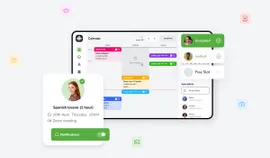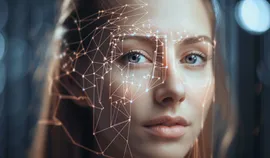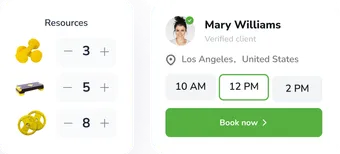Introduction
Artificial intelligence (AI) has undergone a remarkable and rapid evolution and now has the potential to revolutionize the way we live and work fundamentally. A significant shift is coming – the transition to AI is underway and will undoubtedly wholly change how we think about work, performance, and efficiency. So let us understand the current developments.
This article summarizes talking points from two recently released reports (in August 2023): Future of Work Report from LinkedIn and 2023 Work Trend Index: Annual Report from Microsoft.
According to Microsoft data, nearly two-thirds of managers (60%) already feel the negative effects of modern work culture. They are concerned about their teams' lack of innovation and breakthrough ideas. AI can help free up time and energy for creative tasks.
Since January 2016, the number of members with AI skills has increased 9-fold globally. According to LinkedIn, the number of job postings mentioning new AI technologies such as GPT or ChatGPT has increased 21-fold since November 2022.
Human-AI collaboration is becoming the next transformative work model, and the ability to iterate AI-based work is essential for every employee. Leaders consider analytical judgment, flexibility, and emotional intelligence the most critical skills.

Importance of AI for business, technology, and society
Artificial intelligence is relevant in several areas. AI enables increased efficiency through task automation, machine learning, and data-driven decision-making in industry. Companies can use AI to perform big data analytics to gain insights, identify trends, and optimize business strategies. This leads to an increase in productivity and competitiveness.
In the technology industry, AI is driving innovation. AI fundamentally changes how technology affects our daily lives – from autonomous vehicles to smart home appliances to advanced robotics. New applications and services are emerging that were previously unthinkable.
The effects of AI on society are no less profound, especially in education, whose basic principles are increasingly being criticized and revised as AI develops. Many fears and hopes also relate to the areas of communication and health. With these changes also come ethical issues that require careful consideration.
Looking specifically at LinkedIn data, we see that in the U.S., as expected, the Technology, Information, and Media sector has the highest proportion of members with AI skills (2.2%). Although this share may seem low at first glance, it is well above other sectors such as education (1.2%), professional services (0.9%), financial services (0.9%), and manufacturing (0.8%). However, other industries are rapidly catching up. The speed at which members are adding AI skills to their profiles shows that professionals in areas such as financial services (30 times), retail (29 times), and wholesale trade (24 times) are moving to AI faster than professionals in technology, information, and media (11 times).

Navigating excitement and uncertainty
The ongoing integration of artificial intelligence into the world of work has ushered in an era of excitement and uncertainty. While the full extent of the impact is not yet clear, there are ways that individuals, companies, and society can successfully navigate this era of change.
Digital overload and its consequences for innovation
Managing "digital debt" has become a pressing challenge in an increasingly digitized workplace. According to Microsoft's "2023 Work Trend Index: Annual Report," 64% of respondents say they struggle to devote sufficient time and energy to their professional tasks. This constant overload often leads to a downright depletion of resources needed for creative innovation and strategic thinking.
Interestingly, the study shows that companies suffering from this digital strain are 3.5 times more likely to experience barriers to innovation and problems with strategic thinking. This correlation between feeling "digitally indebted" and lacking innovative ideas points to a significant challenge facing companies today.
Advancing technologization and constant accessibility through e-mails, notifications, and virtual meetings have influenced our lives positively. However, this increased flood of communication and information also risks losing valuable time and energy for creative processes.
Artificial Intelligence and humans: A new partnership
In the evolving era of artificial intelligence, a fascinating dynamic is emerging between employees and technology. Although there are concerns about the potential replacement of jobs with AI, Microsoft's figures present an exciting contrast: 70% of respondents are willing to delegate tasks to AI to reduce their workload. This reflection of concern and willingness highlights the evolutionary shift in perception, moving from a hostile attitude to a collaborative partnership.
This partnership is also evident in people's comfort zone with integrating AI into their daily workflows. For example, 76% of respondents are comfortable using AI for administrative tasks. This openness reflects an understanding that AI is ideal for automating repetitive and time-consuming tasks, freeing space for more creative and strategic efforts.
New skills for an AI-enabled future
The transition to the age of artificial intelligence requires technical know-how and a new way of developing skills in dealing with AI. In this context, interacting naturally with language becomes as important as mastery of the Internet and PC use. This reflects the shift in which AI is increasingly perceived as an integral part of communication and interaction in the work environment.
So-called "people skills" (interpersonal skills) are coming to the fore more than ever. In fact, since the launch of ChatGPT, data shows that some of the fastest-growing skills in job postings are interpersonal skills such as flexibility and ethics. In the U.S., in particular, these are the fastest-growing skills:
Flexibility
Social Perception
Self-management
At least 82% of managers believe employees must acquire new skills to adapt to the evolving AI environment. This figure from Microsoft underscores the urgency of focusing on technical expertise and strengthening transferable skills. The right skills will bridge the gap between humans and machines, laying the foundation for smooth and fruitful collaboration.

Prospects and progress
The rapid pace of technological development is changing the world of work in unprecedented ways. Yet, the unstoppable growth of technology should not be seen as a threat. On the contrary, it holds enormous opportunities that we can use to optimize the way we work and focus on the essentials.
For example, in many cases, modern communication takes up much of our time. Based on a report by Microsoft, this imbalance can limit creative potential. This leaves little room for creative thought processes crucial for developing business ideas and innovations. Artificial intelligence offers the opportunity to free us from repetitive tasks and create space for innovation. Much of the time-consuming routine work can be efficiently taken over by technologies such as ChatGPT, booking software, CRM systems with automated notifications, and chatbots.

Conclusion
In today's fast-paced world of work, where artificial intelligence is becoming increasingly important, the question is no longer whether we use these technologies but how. Digitalization, amplified by powerful AI tools, shapes our working lives and creates new dynamics. It's time to embrace change and shift focus from repetitive tasks to creative and strategic challenges. The result? A work environment where technology and people go hand in hand to create real value. ChatGPT and similar tools facilitate communication processes, while booking software and CRM systems like EasyWeek make organization and customer communication more efficient.
Try the 14-day free demo version of EasyWeek software and take advantage of all the possibilities new technologies offer!











